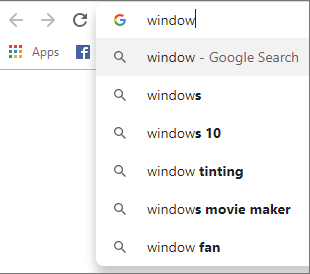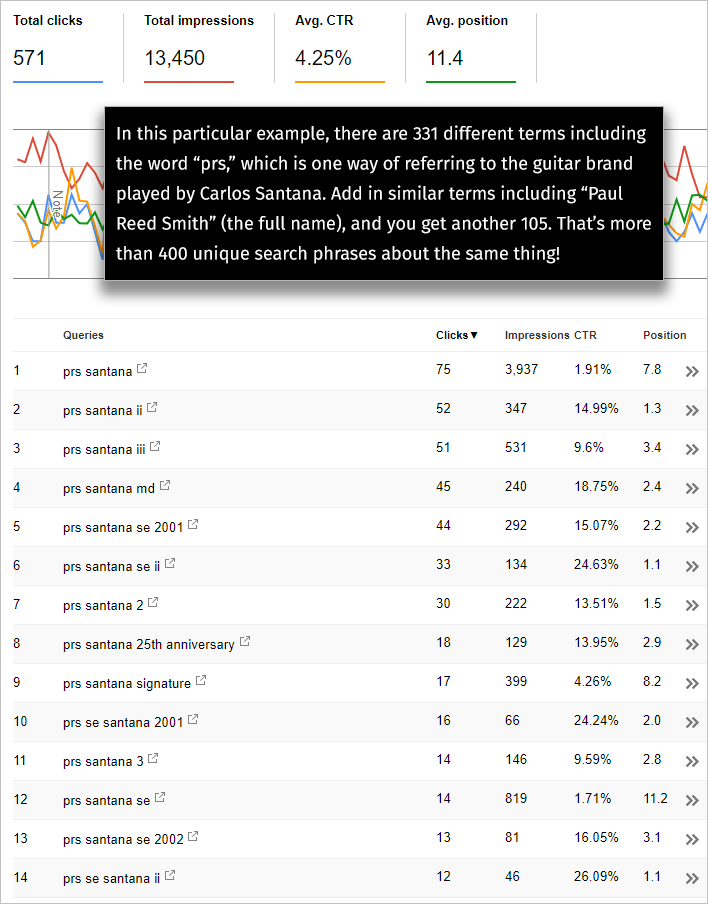First, however, let’s start with a little history of SEO (Search Engine Optimization), to define what we mean by “keywords.”
The beginnings of search engines
Initially, the first popular search engine, Yahoo, was really more of a directory. A sort of Internet phone book. You navigated down from category to sub-category, and so forth, until you got to — hopefully! — a list of the types of sites you were looking for. The ability to “search” this directory was more of an auxiliary feature.
Believe it or not, since being at the “top” of a sub-category list was effective, website names that began with “A” were actually quite valuable! Yes, those were simpler times.
Enter the 800-pound gorilla
In what was a cataclysmic paradigm shift, Google changed all that. Their search engine was exponentially better at connecting users with the type of websites they were seeking. People learned to organize their inquiries into related “search terms,” that became known as “keywords.”
These keywords were the staff of life for the burgeoning industry of SEO. But there were two drawbacks: 1) normal humans don’t necessarily think in terms of targeted keywords, so finding what they were looking for was still somewhat of a hit or miss proposition; 2) SEO professionals — especially the unethical ones — learned to “stuff” web pages with related keywords in order to improve their rankings.
The evolution of search terms
It quickly became evident that the process had to be refined. The trend was away from single keywords and toward “search phrases.” This was a substantial improvement for several reasons:
 Individual keywords are too broad
Individual keywords are too broad
Take a word like “Windows.” It can mean the panes of glass in your house, one of the leading computer operating systems, the concept of looking through or viewing something, and other things. So, when a person types that in, what are they looking for?
Search phrases are more specific
If someone types in “replacement Windows for my house,” it’s much more obvious exactly what they are trying to find. You may have heard the term “long-tail phrases.” It means that the more defining words a user strings together, the clearer their intent. Which brings us to the next point.
It’s all about “intent”
As a business owner, what do you really want to know? The answer: when someone is searching online, what are they actually looking for? The key to successful SEO is to connect with a user who is looking for exactly what you provide. That’s the “sweet spot” of search engine optimization.
SEO 3.0: Search engines that understand language
We have now entered an era where search engines are sophisticated enough to look beyond the specifics of individual words or even phrases, and pull out the thought behind those words. In terms of the user experience, this is a great leap forward.
Rather than trying to phrase your request in terms that a machine might understand, you can simply type in how you would say it when talking to a friend. Example:
The old way
You are looking to replace the windows in your house. Previously, you may have typed in something like: “replacement windows home repair cost.”
The new way
Now, you can simply enter it the way you would say it naturally, so: “I want to replace the windows in my house. How much does it cost?” Google is sophisticated enough to not only interpret exactly what you want, but to provide you a list of websites perfectly relevant to your request.
 So, what does this mean to businesses and the SEO professionals that work for them?
So, what does this mean to businesses and the SEO professionals that work for them?
Out with keywords; in with topics
Back to where we began this article: search terms are passé. What that means is simply that instead of thinking in terms of specific keywords or search terms that you want to put on your website, put relevant content that reflects the services or products you offer.
Does it still benefit you to have an SEO Pro writing for you? Absolutely. Because truly effective SEO companies have people that can write. Well. Really, really well.
Not only do good writers know how to phrase and re-phrase subjects for maximum search engine impact, but they also can simultaneously create content that is easily read and digested by human website readers.
What should you be tracking?
As a business owner, you and your marketing team should still be following the statistics regarding your search engine program. But instead of microscopically diving into individual search terms, look at the topics which people are using to find your site.
Of course, this can be more challenging to analyze. Examining individual words or even short phrases to determine if they fit you and your business, is relatively simple. Poring over a long list of topic-related search phrases, is more complex. This is where it can benefit you to have a seasoned professional help navigate the language.
Besides aiding you in understanding how people are finding your site, a competent analyst can help keep your focus from being too narrow, and assist you in seeing the big picture.
Final notes
Although we have certainly entered a brave new world in SEO, the basics have not changed. Providing your website visitors with relevant, helpful, clearly-written content is still key to marketing effectively on the web.






